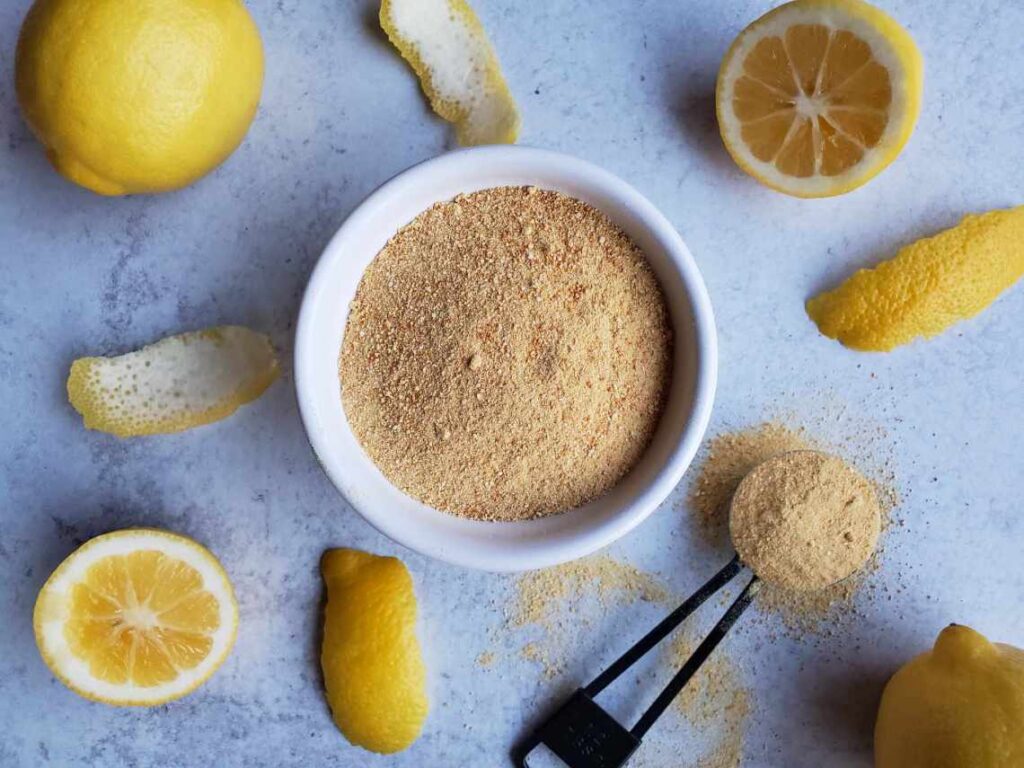Lemon zest, which is the outermost layer of the lemon’s skin, can enhance any dish with its packed flavor and nutrients. Incorporating lemon zest to salad dressings, baked goods, marinades, cocktails, rice dishes, soups and stews, yogurt, salsa, pasta sauces, and marinades for vegetables can elevate their flavors. In addition, lemon zest can support healthy digestion, immune system, and reduce the risk of chronic diseases. The essential oils in lemon zest can provide anti-inflammatory, antifungal, and immune-boosting properties. Lemon zest is a versatile ingredient to experiment with and elevate your favorite dishes.
10 Ways to Use Lemon Zest in Your Cooking
Lemon zest is the outermost layer of the lemon’s skin that is typically removed with a zester or a grater. This zest consists of tiny strips of the skin and is packed with flavor and nutrients that can enhance the taste of any dish. Here are ten creative ways to use lemon zest in your cooking.
1. In Salad Dressings
Adding a hint of lemon zest to your salad dressings can give them a zesty, citrusy flavor that enhances the fresh taste of your greens. Lemon zest goes particularly well with olive oil, balsamic vinegar, and Dijon mustard.
2. In Baked Goods
Lemon zest can add a bright, fresh flavor to baked goods. Add it to cakes, muffins, and scones for a citrusy twist that will elevate your treats.
Nutritional Value:
One teaspoon of lemon zest contains around 1.5 grams of fiber, which helps support healthy digestion. Lemon zest is also rich in vitamin C, which is an antioxidant that helps boost your immune system and may reduce the risk of chronic diseases.
3. In Marinades
Lemon zest can be used in marinades to add flavor and tenderize meat. The acidity in the lemon juice and the oils in the zest break down the protein in the meat, making it more tender and delicious.
4. In Cocktails
Lemon zest is commonly used to garnish cocktails. But it can also be used in the drink itself to add a citrusy flavor. Try adding it to gin and tonic, vodka lemonade, or a lemon Martini for a refreshing drink.
Nutritional Value:
Lemon zest is rich in antioxidants, such as quercetin and naringenin, which can help protect cells from damage and may reduce the risk of chronic diseases.
5. In Rice Dishes
Add lemon zest to rice dishes like risotto, pilaf or stir-fried rice to add a citrusy brightness to the dish. A touch of lemon zest also complements the natural sweetness of the rice.
6. In Soups and Stews
A little bit of lemon zest goes a long way in soups and stews. It can add a subtle brightening of flavor that complements the savory notes of the dish. Try it in chicken noodle soup, minestrone or Moroccan harira.
Nutritional Value:
Lemon zest contains limonene, which is a natural compound that has anti-inflammatory properties. Limonene may help reduce inflammation and promote overall health.
7. In Yogurt
Add lemon zest to plain yogurt for a refreshing and healthy breakfast or snack. The zest adds a tangy flavor that pairs well with fresh fruit or granola.
8. In Salsa
Lemon zest can be used in salsa to add a citrusy bite that enhances the freshness of the ingredients. Try it in tomato salsa, mango salsa, or avocado salsa.
Nutritional Value:
Lemon zest contains a high amount of citric acid, which has been shown to have antibacterial properties. Citric acid may help fight bacteria in the digestive system and may help reduce the risk of certain infections.
9. In Pasta Sauces
Add lemon zest to pasta sauces to add a bright, citrusy flavor that balances the richness of the sauce. It pairs well with tomato sauce, cream sauce or pesto.
10. In Marinades for Vegetables
Lemon zest can be used in marinades for grilled or roasted vegetables. The flavors of the dish are enhanced by the citrusy flavor of the zest, making for a delicious and healthy meal.
Nutritional Value:
Lemon zest contains a high amount of essential oils, such as limonene, pinene, and citral, which may provide anti-inflammatory, antifungal, and immune-boosting properties.
In conclusion, lemon zest is a versatile ingredient that can be used in many ways to enhance the flavor and nutritional value of your favorite dishes. Try incorporating it into your cooking and taste the difference it makes!
